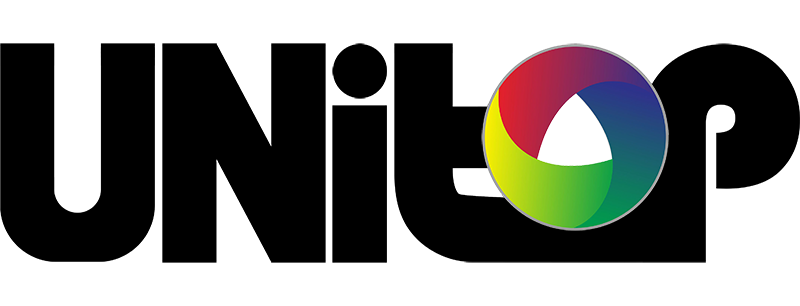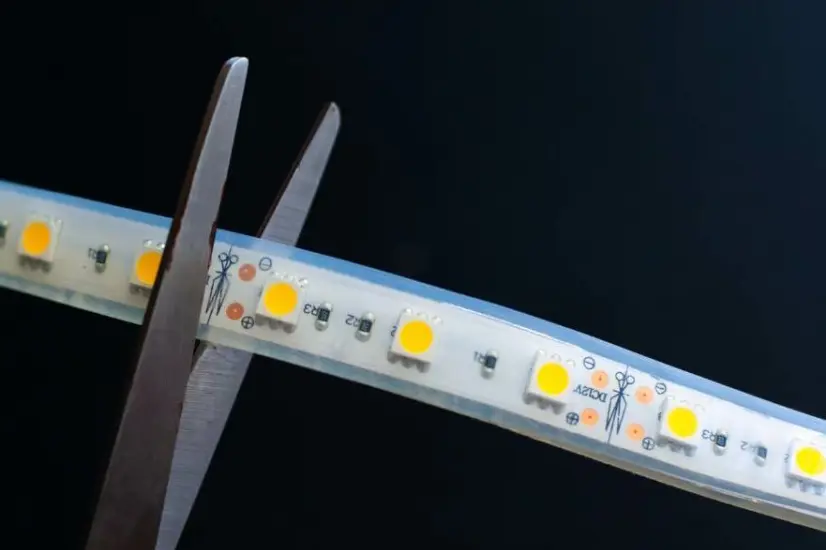Are you considering giving your space a unique touch with LED lights but puzzled about whether you can cut them to fit perfectly? You’re in the right place for the answers you need. This comprehensive guide is your go-to resource for understanding and mastering the art of cutting LED lights.
LED lights can still function after being cut, provided they’re cut at specific points designed for this purpose. The key lies in understanding the structure of LED strips and using the right tools and techniques to modify them without compromising their functionality.
Dive deeper with us as we explore the intricacies of cutting LED lights. From the essential tools to step-by-step instructions and creative applications, this article covers everything you need to know to customize LED lighting effectively for your space.
Identifying the Right Points to Cut on LED Strips
Cutting LED light strips requires precision to maintain their functionality. The designated cutting points, marked with a scissors icon or dashed lines, are crucial for preserving the circuitry. These points indicate safe zones for cutting, ensuring the strip remains operational after modification. Cutting here avoids damaging the strip’s integrity and prevents safety hazards like short circuits. It’s essential to locate these marks before customizing the length of your LED strips to ensure a perfect fit and continuous, safe operation.
Step-by-Step Process of Safely Cutting LED Lights
Preparation and Tools Required
Begin by setting up a clear, well-lit workspace. Essential tools include a sharp pair of scissors or a craft knife and a tape measure for accurate measurements. Ensure your tools are in good condition, as blunt instruments can damage the LED strip.
Detailed Cutting Instructions
First, measure the length needed for your LED strip placement.Then, locate the scissors logo or cut a line on the strip, marking it with a fine-tip marker for precision. When cutting, use a steady hand to make a clean, straight cut along the marked line. Accuracy is key, as a straight cut ensures both the aesthetics and functionality of the LED strip. Handle the cut strip carefully, especially the delicate cut end, to avoid any damage to the LEDs.
Ensuring LED Strip Functionality After Cutting
After cutting your LED strips, it’s crucial to confirm their functionality. The first step is to connect the freshly cut strip to a power source. If the strip doesn’t illuminate, it’s time for some troubleshooting. First, check the connections to ensure they are secure and correctly aligned. If everything seems in place, but the lights still don’t work, the issue may be with the polarity. LED strips have a specific direction for current flow, indicated by positive (+) and negative (-) markings. Ensure these match with your power source or connector. It’s common to encounter minor issues during this phase, so approach it with patience and a methodical mindset.
Techniques for Joining Cut LED Strips
Choosing the Right Connectors
When it comes to joining cut LED strips, selecting the appropriate connector is essential for seamless functionality. The type of connector you need depends on the configuration of your lighting project. For straight-line connections, gapless connectors are ideal as they provide a continuous, uninterrupted light flow. For more complex installations that require bends or turns, such as around corners or contours, jumper cord connectors offer the flexibility needed. These connectors come in various lengths and styles, so it’s important to choose one that fits your strip’s width and installation needs.
Best Practices for Joining Strips
Proper alignment and secure fastening of connectors are pivotal in ensuring your LED strips function correctly after being joined. When connecting, align the strips carefully within the connector, ensuring the electrical contacts match. If your strip has adhesive backing, it can be helpful to remove a small section to fit and secure the strip in the connector better. Once connected, a gentle tug on the strips can confirm they’re securely attached. Misalignment can result in dim or non-functional sections of your LED strip, so take your time during this process. Additionally, inspect the connectors for any signs of damage or wear before use, as this can impact the performance of your LED lights.
By following these guidelines, you can ensure a successful installation of your LED strips, maintaining both their aesthetic appeal and functionality.
Creative and Practical Uses of Cut LED Lights
LED strips offer endless possibilities for both practical and decorative purposes. Use them for under-cabinet lighting to enhance kitchen functionality or in bedrooms to create a cozy ambiance. They’re also perfect for custom signage in businesses, offering sleek, professional backlighting. DIY enthusiasts can explore various projects, from unique furniture accents to artwork backlighting.
Maintaining the Quality of Cut LED Strips
Regular maintenance is key to extending the life of your LED strips. Keep them dust-free with gentle cleaning, and store unused strips in a cool, dry place to protect the electronics and adhesive. Handle them carefully to avoid damage, and periodically check connections to ensure they remain secure and functional. Proper care will keep your LED strips shining brightly for longer.
Conclusión
The skill of cutting and customizing LED strips unlocks endless lighting possibilities, allowing you to enhance any space creatively. Precision in cutting and connectivity is crucial for the success of your lighting project. Whether you’re illuminating a home or a business, the right LED setup can transform an area, combining functionality with aesthetic appeal. Embrace this opportunity to innovate and personalize your environment with LED lighting.
Discover the endless possibilities with LED lighting by mastering the art of cutting LED strips. For top-quality Tiras de luces LED y Flexo de neón LED, turn to Unitop, a leader in China’s LED industry. With Unitop’s expertise and innovative products, your lighting projects will shine. Have questions or specific needs? Contactar con Unitop immediately for professional guidance and exceptional LED solutions.
Puestos relacionados

Tom es ahora el Director de Ventas de Unitop (China) Co., Limited. Ha estado en el Iluminación LED industria desde 2005. Es experto en ventas y marketing, y en gestión de fábricas. Le gusta el culturismo, ¡y también es un fan loco de Apple! Es un tipo muy trabajador y le encanta aprender y probar cosas nuevas.
Correo electrónico: tom@unitopledstrip.com WhatsApp: +86-18680307140





Dejar un comentario
¿Quieres unirte a la conversación?Siéntete libre de contribuir!